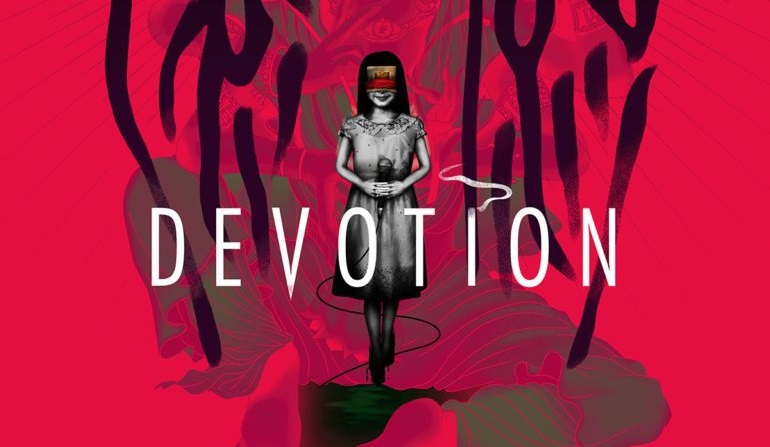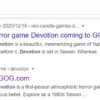
GOG have announced they will not be selling Chinese-blacklisted horror game Devotion, hours after the developer stated they would.
For those unfamiliar, in February 2019 Taiwanese developer Red Candle Games were accused of placing hidden messages in their horror game Devotion, mocking the Chinese President Xi Jinping. As the game centers around a cult, others felt Devotion as a whole was a critique or mockery of the Chinese government, and its supporters in mainland China.
The game’s publisher, Indieevent, later had their business licence revoked by the Chinese government. In July 2019 the developer confirmed the game would not be returning to sale. The game was later added to the Harvard University library. Red Candle Games announced the game will have a limited physical release in June, purely within Taiwan.
Today, Red Candle Games tweeted at 5 a.m. ET that the game would be coming to GOG for $16.99 USD, with “The content and the price of the re-release” remaining the same. However, at 10:14 a.m. ET, GOG tweeted “Earlier today, it was announced that the game Devotion is coming to GOG. After receiving many messages from gamers, we have decided not to list the game in our store.”
On some search engines, the game’s listing can still be seen (see below). However, caches and archives of the page are non-existent [1, 2]. Editor’s Note: The GOG forum thread discussing the game’s rating dramatically dropping refers to when the game first appeared on Steam.
The reasoning and language used by GOG seems strange. The only gamers likely to complain about Devotion are those based in China, where they are under the social credit policy; where “good citizens” are rewarded while “bad citizens” have access to less services.
As such, those complaining about the game’s inclusion may be doing so for fear of being punished if they do not object, or fear of GOG being cut off in China. There is also the chance of it being the “50 Cent Party,” hired commenters and trolls working on behalf of the Chinese government. Discussion of them was recently exposed as being censored on YouTube.
Except, GOG is not officially available in China. While the website is available in Simplified Chinese, many users have had to use a VPN to work around China’s “Great Firewall.”
Based on this, the remaining motivations include GOG trying to ensure there are no further restrictions against them being unofficially available in China, or those who own stock in CD Projekt (GOG’s owner) demanding the game not be sold under threat of selling their shares.
The situation bears strong comparisons to when pro-Hearthstone player Blitzchung was suspended by Blizzard Entertainment for his support of the Hong Kong protests in 2019, firing the casters, and their overall handing of the entire debacle [1, 2, 3].
Due to Chinese tech giant Tencent owning 5% of Activision Blizzard, we dug into if they could have influenced Blizzard Entertainment. The findings of our report found that Activision Blizzard made less than 13% of their total profit in Q2 2019 in the Asia-Pacific region. Without a per-franchise break-down of profits, we were unable to determine exactly how much profit Hearthstone generates per-region.
The Chinese government’s influence on gaming and media in general has been a somewhat frequent topic here on Niche Gamer. Recent stories of their influence beyond their borders include Genshin Impact censoring “Hong Kong” and “Taiwan” in the in-game chat (no matter the player’s region), and a Call of Duty Black Ops: Cold War trailer censored for using footage from the Tiananmen Square protests.
Image: Delisted Steam page.

